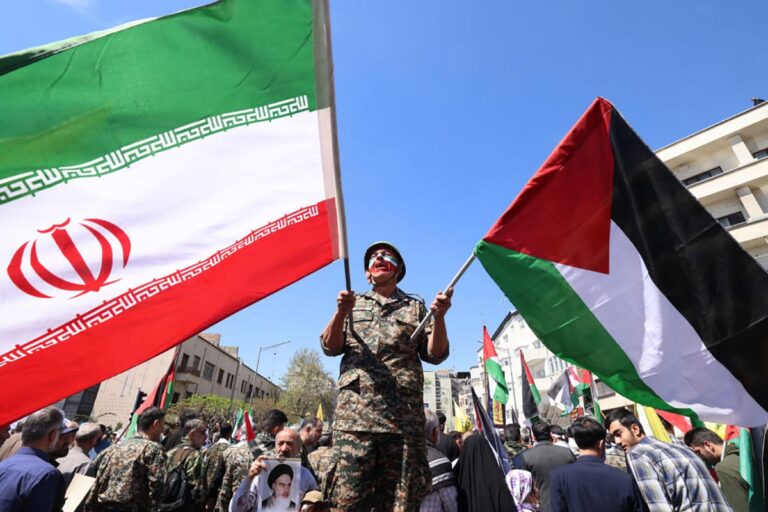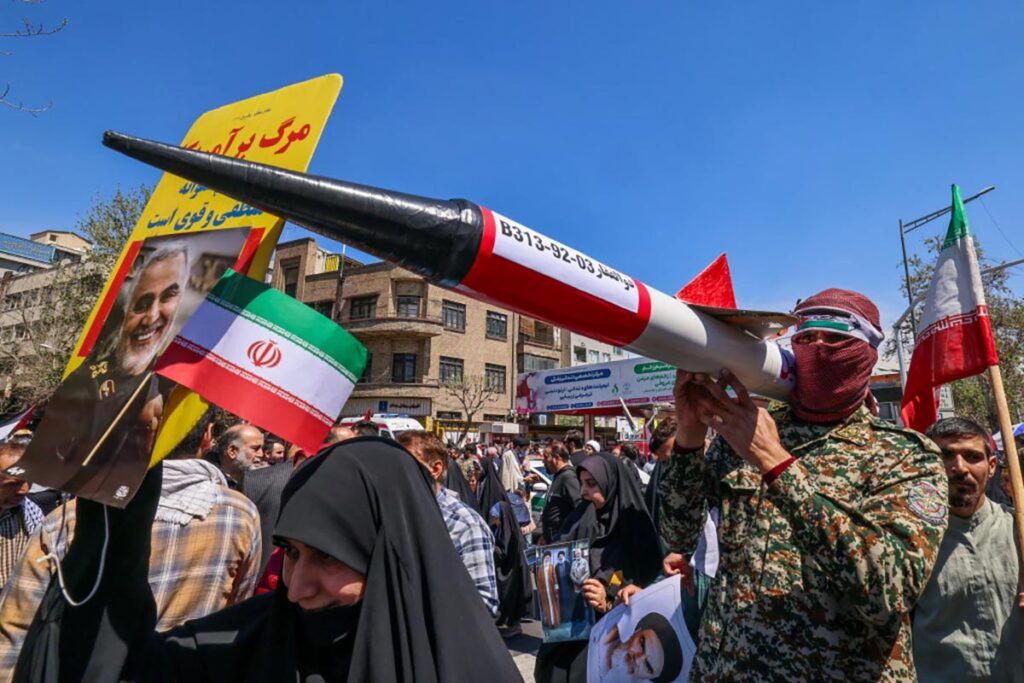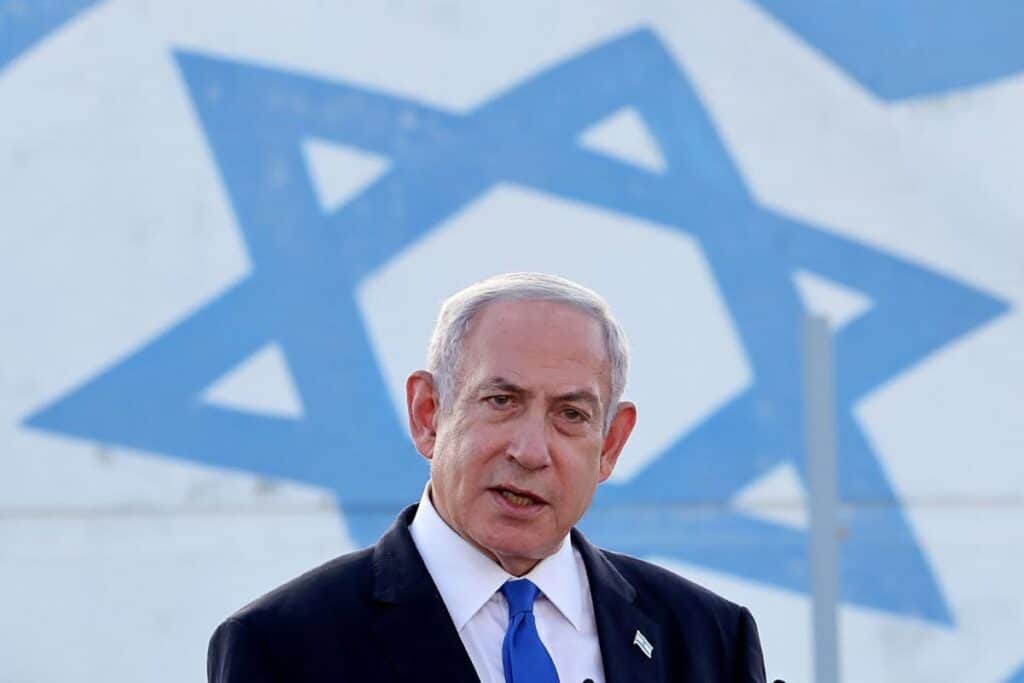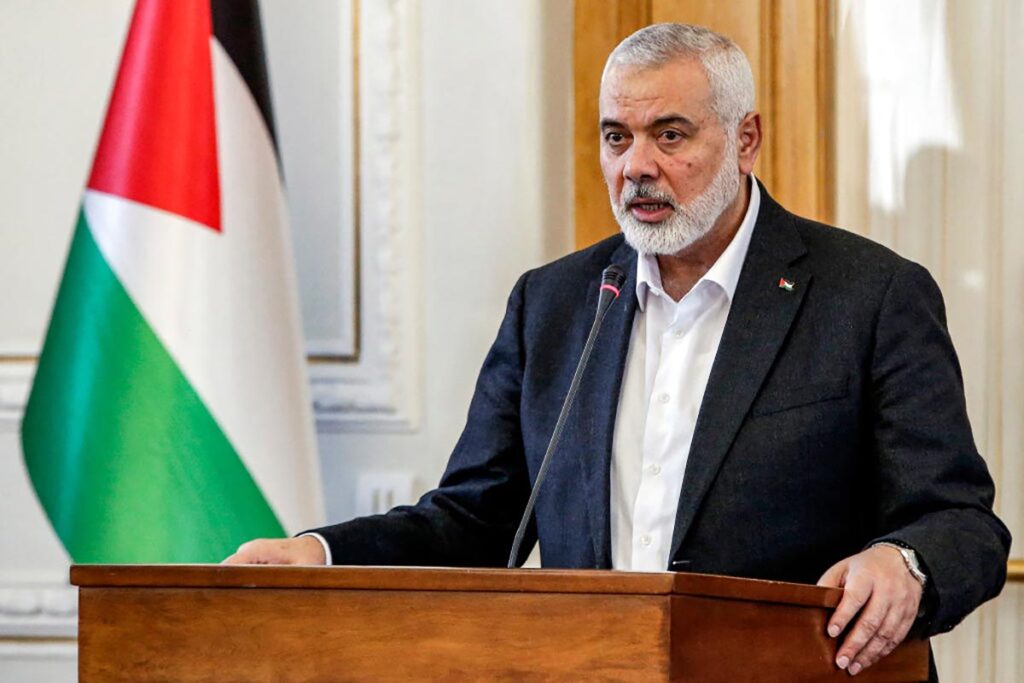
The war between Hamas and Israel has now surpassed 188 days. Here are the key developments from this past week.
1. Israel prepares as Iranian threats grow

All eyes have been on Iran for the past week, as Israel waits to see if or how Iran will respond to the airstrike that targeted Iranian commanders in Damascus last week.
On Wednesday, Bloomberg reported that the Iranian response was “imminent,” with U.S. intelligence believing that Iran was planning a major missile or drone strike against Israel within “the coming days.”
Israeli leaders have made clear that Israel is preparing for any possible scenario, although the IDF has stressed that there’s no reason for citizens to panic. The IDF asked local authorities to prepare shelters and other emergency preparations for a possible attack quietly so it wouldn’t cause a panic, according to a KAN report from Thursday.
Digging deeper: An Iranian attack on Israel risks significantly escalating the conflict currently between Israel and Hamas, including by spreading to other countries.
The U.S. and other Israeli allies could get pulled into the conflict as well, depending on how severe the Iranian attack ends up being.
U.S. President Joe Biden promised to stand by Israel in the face of any attack by Iran on Wednesday, and Western allies of Israel have been urging Iran to stand down in recent days.
2. Netanyahu says Rafah op date set as troops withdraw from southern Gaza

Prime Minister Benjamin Netanyahu sparked a diplomatic storm on Monday after announcing that a date had been set for the invasion of Rafah.
Netanyahu stressed that a victory in Gaza “requires entering Rafah and eliminating the terrorist battalions there” and promised “this will happen; there is a date.”
However, Defense Minister Yoav Gallant reportedly contradicted Netanyahu’s statement during discussions with U.S. Secretary of Defense Lloyd Austin, saying that no specific date has been set for an invasion of Rafah.
U.S. Secretary of State Antony Blinken also said on Tuesday that the U.S. hasn’t been notified of any date being set for the Rafah invasion.
Netanyahu’s announcement came shortly after the IDF announced that it had pulled out of southern Gaza on Sunday. The withdrawal marked the end of the intensive phase of ground operations and the move to a new phase focused on precision operations in Gaza.
Digging deeper: Netanyahu’s remarks coincided with the resumption of ceasefire and hostage release talks in Egypt.
Some analysts believe that Netanyahu made the statement in order to increase pressure on Hamas, noting that both U.S. and Israeli officials have said that no invasion date has been set.
Others believe Netanyahu made the statement to appease coalition partners in his government who are pushing for a more aggressive stance, including an invasion of Rafah.
3. Biden says Netanyahu making mistakes, Pelosi calls to stop arms shipments
U.S. President Joe Biden renewed his criticism of Netanyahu on Tuesday, telling Univision that he believes the prime minister’s policies in the Gaza war are a “mistake.”
The president said he disagreed with Netanyahu’s approach to the war, calling on Israel to agree to a six- to eight-week-long ceasefire to allow more aid into Gaza.
Some interpreted the president’s comments to Univision as blaming Israel for the failures in ceasefire talks. However, the next day, he said it was “now up to Hamas” to agree to a deal.
In another example of tensions in U.S.-Israeli relations, former House Speaker Nancy Pelosi signed a letter with 39 other Democratic members of Congress last Friday calling on the U.S. to stop transferring weapons to Israel in light of the humanitarian crisis in Gaza and an Israeli strike in which aid workers were killed last week.
Why it matters: Biden and several other U.S. politicians who used to be more supportive of Israel have become increasingly critical in recent months, especially since the strike in which aid workers were killed.
Pelosi’s decision to sign the letter supporting halting military aid was also a major development as she is seen as part of the mainstream of the Democratic Party. Pelosi had also, up until now, been outspoken in her support for Israel, even criticizing pro-Palestinian protesters in January.
4. Israel passes law to ban Al Jazeera, but channel remains open

Last week, the Knesset passed a law allowing the government to ban foreign news channels that harm Israel’s national security, part of efforts to prevent Al Jazeera, a Qatari channel supportive of Hamas, from operating in Israel.
Despite the approval of the law, the channel has remained operating in Israel as of Friday.
KAN news reported on Thursday that the cabinet had received a security assessment supporting the closure of Al Jazeera, one of the requirements set by the law, meaning it was now up to Netanyahu to make the final decision to shut down the channel.
For years, Israeli leaders have called for Al Jazeera’s branch in Israel to be closed due to concerns that the channel was helping Israel’s enemies, especially Hamas, by broadcasting incitement and even sensitive information against Israel.
Digging deeper: Since October 7th, both members of the coalition and the opposition in the Knesset have intensified calls for Al Jazeera to be shut down due to what many Israelis see as incitement spread by the channel against Israel.
In November, Israel shut down the local branch of the Lebanese pro-Iranian Al-Mayadeen channel through emergency war regulations, but refrained from applying these regulations to Al Jazeera.
The White House has expressed concern over the law, emphasizing the importance of maintaining freedom of the press.
5. IDF assassinates sons of Hamas leader Haniyeh

Amir, Mohammad, and Hazem Haniyeh, three sons of Hamas’s political leader, Ismail Haniyeh, were killed in an Israeli airstrike in central Gaza on Wednesday.
Four of Haniyeh’s grandchildren were also killed in the strike.
According to the IDF, Amir served as a cell commander in Hamas’s military wing. Israeli media reported that one of the three sons killed was involved in holding Israeli hostages captive.
Haniyeh expressed thanks for the “martyrdom” of his sons. The Hamas leader added that 60 members of his family and extended family have died during the war.
Digging deeper: According to reports, neither Prime Minister Netanyahu nor Defense Minister Gallant were informed about the strike beforehand, as it was carried out in order to thwart an immediate threat rather than as a targeted assassination.
The strike sparked concerns about potentially hindering ongoing efforts to reach a ceasefire and hostage release deal. However, Haniyeh stressed on Thursday that Hamas still intends to continue the talks despite the death of his sons.
